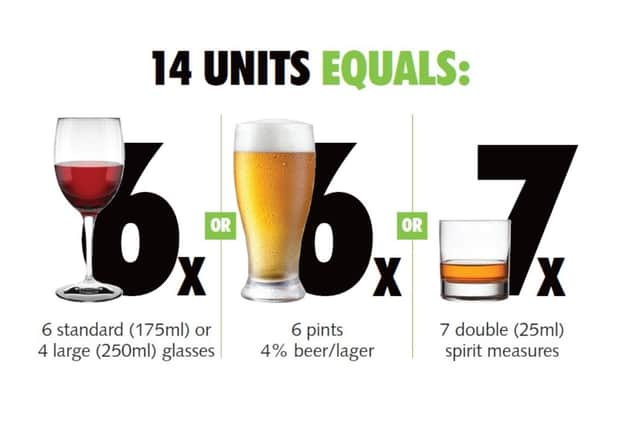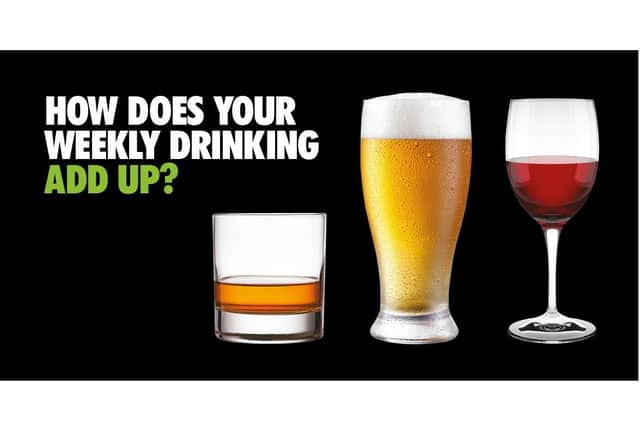How to take control of your drinking - and why it matters


The Covid-19 pandemic continues to be a stressful time, heaping financial and emotional pressure on families across the UK.
With the loss of established routines, children at home more, and worries over the health of ourselves and our loved ones, some people might find drinking creeping up on them.
However, using alcohol is never a good way to cope. An estimated 650,000 North East drinkers have cut down or stopped drinking alcohol during recent months but if you feel like you’re drinking more and want help to cut back, we’ve pulled together some facts and tips to help.


Know your units
The Chief Medical Officer recommends drinking no more than 14 units a week, in order to protect physical and mental health. That equates to around six pints of regular strength beer or lager, six standard glasses of wine or seven double measures of spirits.
Regularly drinking above 14 units a week increases the risk of a whole range of conditions, including heart disease, stroke and seven types of cancer. Heavy drinking can also increase the risk of respiratory disease.
Alcohol and mental health
According to the Royal College of Psychiatrists, regularly drinking alcohol affects the chemistry of the brain and can increase the risk of depression, low mood and anxiety.
Alcohol and weight
Research has shown that many people aren’t sure about the number of calories in their drinks. But two standard glasses of wine or 330ml bottles of lager have around 300 calories. That’s the same as a burger. Being overweight is also a major risk factor for causing diabetes.
Alcohol and young people
When it comes to alcohol and young people, parents often find it confusing to know what to do for the best. The safest option is to follow the Chief Medical Officer guidelines that it is safest and healthiest for children to not drink before the age of 18. For advice every parent needs to know visit whatstheharm.co.uk and download the free parents guide.
Tips to reduce your drinking
1.Try not to stockpile alcohol. Limit the amount of alcohol you buy in and opt for non-alcoholic drinks to help you stay within the 14 unit low-risk weekly guidelines. To find out more visit reducemyrisk.tv
2. Having at least three drink-free days every week is a great way to cut down on how much you’re drinking. Visit reducemyrisk.tv to download the free Drink Free Days app.
3. With schools closed, think about being a good role model to your kids around alcohol, which includes how often and how much you drink alcohol.
4. You can track your units, calories and money saved when you cut down or cut out alcohol through the Try Dry app from Alcohol Change.
5. Use a measure to pour your drinks – home-poured measures are often a lot more generous than those you’d get in the pub and contain more units and calories than a standard measure.
6. If you’re feeling stressed or anxious, it can be tempting to turn to alcohol to help you relax. But here are some top ways to unwind from Alcohol Change UK that don’t involve alcohol.
7. If you are concerned about your own drinking or someone else’s, call the national alcohol helpline Drinkline on 0300 123 1110 (weekdays 9am–8pm, weekends 11am–4pm). Local support is also available through NERAF see www.neraf.org or call 0191 5148520. www.livelifewell.org.uk has further tips, advice and links to local support.